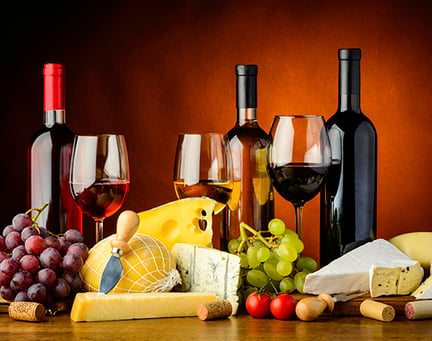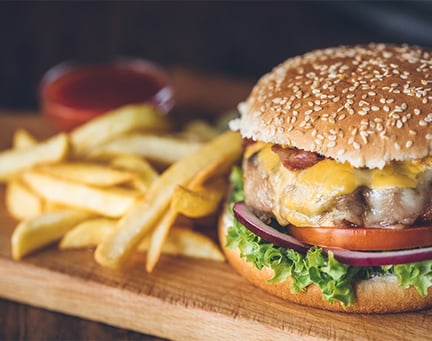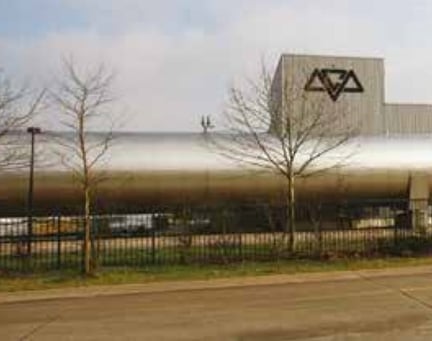Following on from his LRQA Blog on our experience delivering Customised assurance, Stuart Kelly, Head of Retail and Hospitality Assurance Services, discusses why adopting a tailored approach is not only highly cost effective, but also adds real value.
Customised Assurance protects food businesses, saves money and adds real value Delivering quality products while protecting staff and customers from harm should be at the forefront of all food and drink businesses’ core objectives. While many of the globally recognised assurance standards promote best-practice and address broad issues, often a tailored approach to brand protection is vital for ensuring the most robust levels of compliance.
Following on from his LRQA Blog on our experience delivering Customised Assurance, Stuart Kelly, Head of Commercial, Customised Assurance, discusses why adopting a tailored approach is not only highly cost effective, but also adds real value.
You’ve worked with businesses across the food and drink supply chain for several years now, how have the pressures on them changed in recent times?
The pressures being faced by food businesses are immense and continue to grow, particularly if they operate globally. The three biggest concerns faced, and this applies to almost every business, are around growing consumer awareness and demand, a lack of dedicated technical resource and increasing pressure to deliver a quality product and still make a profit. There’s so much more obviously, but these three macro trends underpin the issues we see every day in almost every country.
“The costs of failing to provide quality food, failing to use a sustainable and ethical supply chain, or failing to keep staff and customers safe from harm will always be higher than anything paid for Customised Assurance services.”
If, as you say budgets are tight, but food businesses already invest significantly in established accredited audits, how can they justify the cost of putting in place a Customised Assurance Programme?
Customised Assurance programmes are not commoditised products, they are designed for the customer and look to address their specific issues. Therefore, cost can vary immensely. It’s all about listening to a customers’ challenges and working in partnership with them to build something which meets their needs.
Also, if you look globally at retail and hospitality providers, there are very few if any accredited standards in place to protect this sector. When you think that these businesses are right at the consumer facing end of the supply chain it’s especially vital they use Customised Assurance to protect their stores, staff and customers.
Finally, just relying on tick box audits can be extremely dangerous. These audits are great for maintaining best practice and general industry standards, but none address all the challenges facing the sector. The costs of failing to provide quality food, failing to use a sustainable and ethical supply chain, or failing to keep staff and customers safe from harm will always be higher than anything paid for Customised Assurance services.
Reducing risk to a customer’s brand aside, you mentioned that Customised Assurance can save a business money, how is that?
Good question! One very effective way is to develop a risk-based approach to auditing a customer’s estate. For example, if they have 100 premises and budget for 200 audits a year we can visit all sites once then use the remaining audit allocation to re-visit the sites who require the most attention. This risk-based approach rewards the best performers, identifies trends and lets us focus on helping underperforming sites or staff.
Additionally, by using a trusted sector specialist like LRQA, a customer can gain access to a far wider pool of experts than they could employ cost effectively. We have teams who cover very specific areas of the food supply chain. For example, we have staff who are technical experts in areas like red meat, dairy, nutrition, environmental health, supply chain sustainability and ethical sourcing. We know budgets are stretched and we also know that talent is difficult to find. Luckily, we have around 500 food sector staff and associates and can make the right resource available to customers for their individual projects.
Another example comes from a few years ago when we were asked by a major meat processor to review and audit their plants with a specific remit to reduce product recalls. They’d seen a real spike in products being returned by retailers and it was costing them thousands.
After a series of focused audits, we made our recommendations and they were happy for us to continue auditing their plants. However, to us the opportunity was simple, address and challenge head on, or continue to suffer product recall penalties and erode margin and profitability. By suggesting they used what budget they had in a proactive rather than reactive way, we worked with them to develop a specific Good Manufacturing Practice (GMP) training course for every employee. This proved to be far more effective in the long-term and did more than continual audits to protect the product quality and reduce recalls.
The opportunity was simple, address and challenge the issue head on, or continue to suffer product recall penalties and erode margin and profitability.
What other ways can value be added through LRQA's Customised Assurance Service?
One other great thing about these tailored services is that our customers can then go to their customers and tell them that they are going above and beyond to ensure they operate in a safe, sustainable and ethical way. This transparency builds real trust and points towards a provider acting with the right level of integrity. Value is also added through our technology platform LRQA Assist. It’s a flexible tool and can link Customised Assurance audits to a dedicated online customer portal, giving food and drink businesses real-time oversight of their own brand standard audits. It’s perfect for tracking safety trends, monitoring suppliers and ensuring that users have a joined up approach to compliance. The real power in LRQA Assist is that it isn’t software as a service, but a compliance tool built for the food and drink sector and more importantly, one which complements Customised Assurance programmes just as effortlessly as the more well know accredited services.











